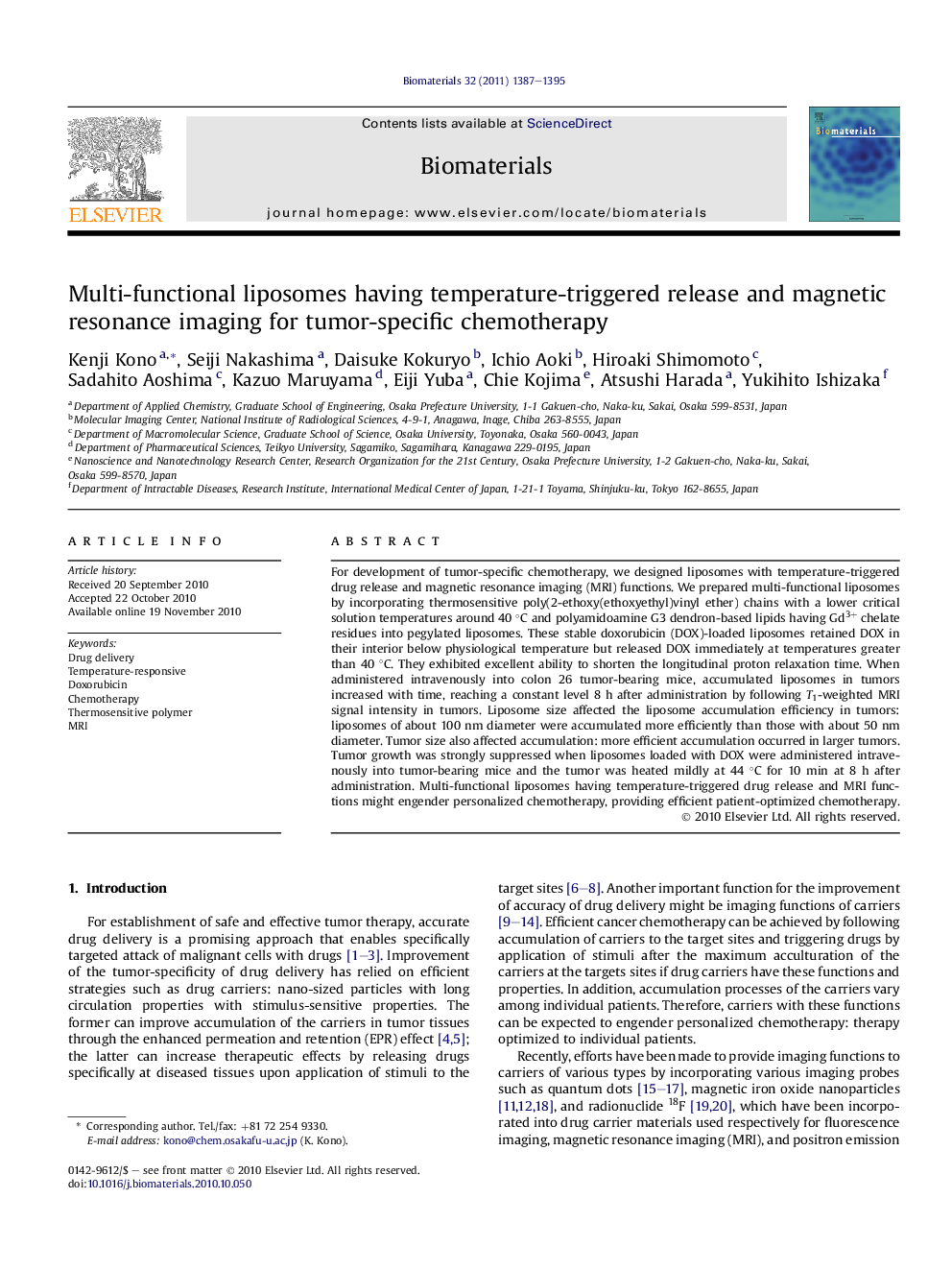| Article ID | Journal | Published Year | Pages | File Type |
|---|---|---|---|---|
| 7839 | Biomaterials | 2011 | 9 Pages |
For development of tumor-specific chemotherapy, we designed liposomes with temperature-triggered drug release and magnetic resonance imaging (MRI) functions. We prepared multi-functional liposomes by incorporating thermosensitive poly(2-ethoxy(ethoxyethyl)vinyl ether) chains with a lower critical solution temperatures around 40 °C and polyamidoamine G3 dendron-based lipids having Gd3+ chelate residues into pegylated liposomes. These stable doxorubicin (DOX)-loaded liposomes retained DOX in their interior below physiological temperature but released DOX immediately at temperatures greater than 40 °C. They exhibited excellent ability to shorten the longitudinal proton relaxation time. When administered intravenously into colon 26 tumor-bearing mice, accumulated liposomes in tumors increased with time, reaching a constant level 8 h after administration by following T1-weighted MRI signal intensity in tumors. Liposome size affected the liposome accumulation efficiency in tumors: liposomes of about 100 nm diameter were accumulated more efficiently than those with about 50 nm diameter. Tumor size also affected accumulation: more efficient accumulation occurred in larger tumors. Tumor growth was strongly suppressed when liposomes loaded with DOX were administered intravenously into tumor-bearing mice and the tumor was heated mildly at 44 °C for 10 min at 8 h after administration. Multi-functional liposomes having temperature-triggered drug release and MRI functions might engender personalized chemotherapy, providing efficient patient-optimized chemotherapy.
